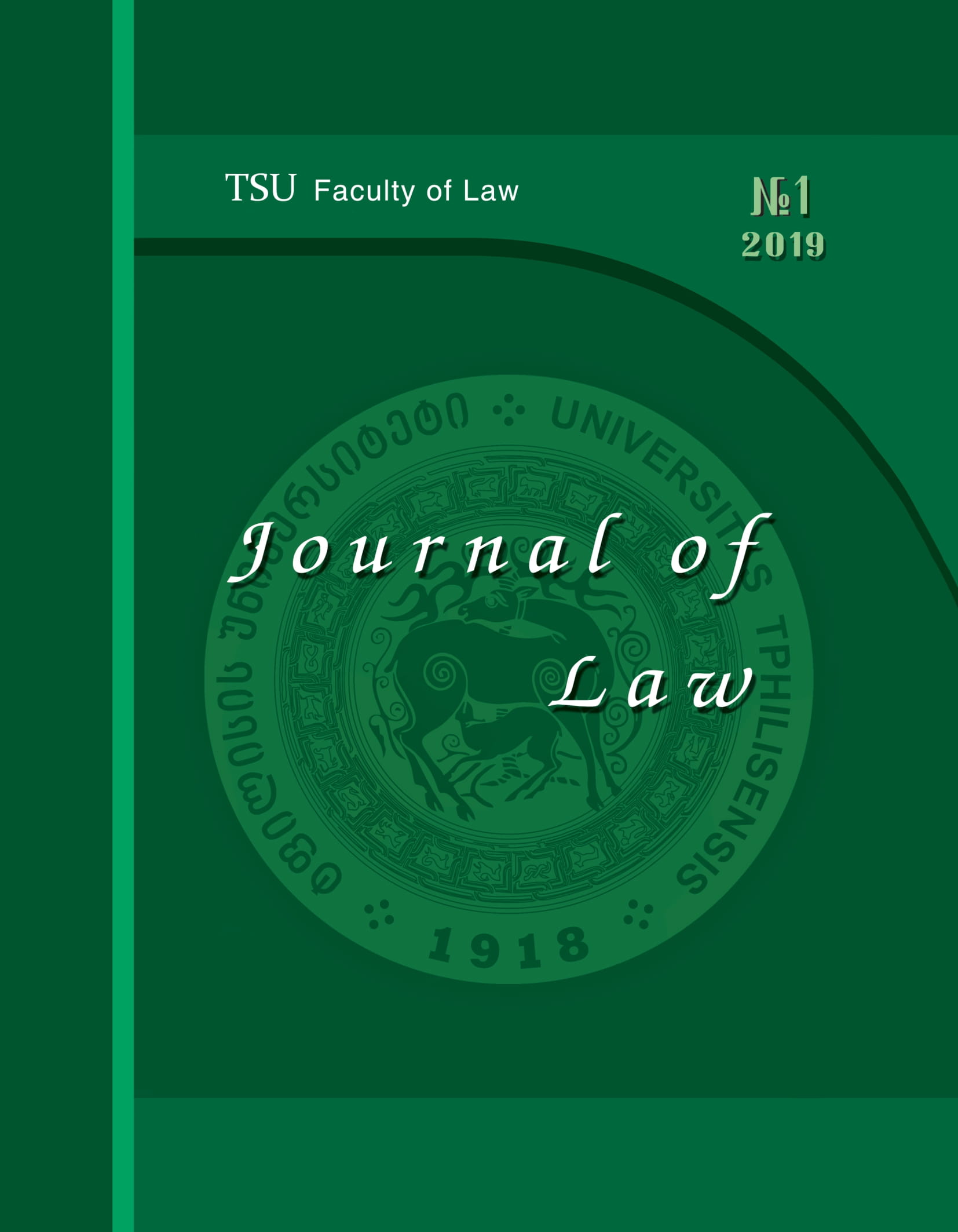Importance of Hearsay in Accordance with the Practice of the European Court of Human Rights
Keywords:
Confrontation Right, Hearsay, Adversary Principle, Counterbalancing Factors.Abstract
It is obvious, that Article 6 of the European Convention on Human Rights enshrined the principle that before the accused could be convicted all the evidence against him had to be produced in his presence at a public hearing with a view to adversarial argument. In addition the use of statements obtained at the pre-trial stage is not always in itself inconsistent with fair trial right if the defendant has been given an adequate and proper opportunities to challenge depositions at an investigation stage.[1] Perhaps the accused has never had a chance to question witness but it did not automatically result in a breach of fair trial right if there were sufficient counterbalancing factors to compensate for the handicaps under which the defence laboured as a result of limiting witness examination right. Because the defendant faces such kind of handicaps which criminal process law does not include it is necessary to be sufficient counterbalancing factors while using hearsay evidence.Thus, in the present work we will analyze as national courts as European Court of Human Right’s approach to hearsay which enables us to define the purpose of hearsay evidence for criminal process law and master in depth about international court’s experience in the use of hearsay evidence.
[1] Windischv. Austria, 1993, ECHR, §26.
References
Criminal Procedure Code of Georgia, LHG, 31, 09/10/2009.
The Convention for the Protection of Human Rights and Fundamental Freedoms, Rome, 04/11/1950.
Heeter E. M., Chance of Rain: Rethinking Circumstantial Evidence Jury Instructions, Hastings Law Journal, February 2013, 533.
Hurley J.B., Confrontation and the unavailable witness: Searching for a standard Valparo University Law Review, 1983, 193.
Judicial Council of California Advisory Committee on Criminal Jury Instructions, 2018, 52.
Maglakelidze L., Tumanishvili G., Importance of Indirect Evidence in Accordance with the Georgian and International Criminal Procedure, Justice and Law Journal, №1 (53), 2017, 36 (in Georgian).
Meritt J. D., Simmons R., Learning Evidence from the Federal Rules to the Courtroom, American Casebook Series, 2009, 1.
Decision of Supreme Court of Georgia, Dated June 26th, 2018, №73ap-18.
Decision of Supreme Court of Georgia, Dated April 27th, 2018, №646ap-17.
Decision of Supreme Court of Georgia, Dated March 20th, 2018, №541ap-17.
Decision of Supreme Court of Georgia, Dated February 22th, 2018, №502ap-17.
Decision of Supreme Court of Georgia, Dated June 30th, 2015, №14ap-15.
Decision of Constitutional Court of Georgia, Dated January 22th, 2015, №1/1/548.
Decision of Supreme Court of Georgia, Dated December 18th, 2014, №218ap-14.
N.K v. Germany, 2018, ECHR.
Batek and Others v. The Czech Republic, 2017, ECHR.
Paic v. Croatia, 2016, ECHR.
Seton v. The United Kingdom, 2016, ECHR.
Schatschashvili v. Germany, 2015, ECHR.
Scholer v. Germany, 2015, ECHR.
Chmura v. Poland, 2012, ECHR.
Pichugin v. Russia, 2012, ECHR.
Al-Kwavaja and Tahery v. The United Kingdom, 2011, ECHR.
Garcia Ruiz v. Spain, 1999, ECHR.
Windisch v. Austria, 1993, ECHR.
Kostowski v The Netherlands, 1989, ECHR.
Unterpertinger v Austria, 1986, ECHR.
Downloads
Published
How to Cite
Issue
Section
License
Copyright (c) 2020 TSU Publishing House

This work is licensed under a Creative Commons Attribution-ShareAlike 4.0 International License.









